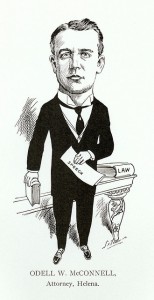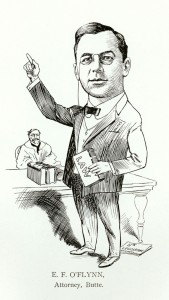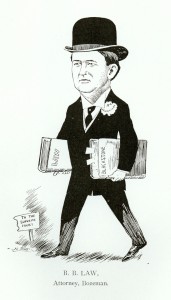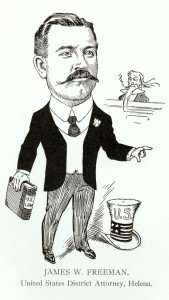So You Got a Cease & Desist Letter. Now What?
Unless you’ve been hiding under a rock, you’ve heard that Matthew Inman of The Oatmeal fame got a nasty cease & desist letter from an attorney representing the website FunnyJunk. The letter, aside from being rude and priggish, demanded $20,000 for some unarticulated harm. Inaman has responded by raising over $100,000 for charity.
(If you have been hiding under a rock, or aren’t a nerd, you can get caught up on the whole fiasco here.)
There are quite a few good posts about the legal issues involved and why the letter is a flaming pile of legal poo, but I haven’t seen any posts about what a cease and desist letter is, and what to do if you aren’t Matthew Inman with millions of rabid internet fans and you get one of these nasty grams. So I decided to write that post.
First off, what is a cease and desist letter?
Cease and desist letters have two main purposes. The first is probably fairly obvious: it tells you to stop doing that thing you are doing and fix whatever harm you’ve caused by doing it. The demand to stop is based on a claim the author, or the author’s client, has a legal right to do or have something and you are interfering with that right.
The second purpose of these letters might help explain why they often sound as if they were written by an angry pedantic badger. C&Ds, as the kids who have mountains of law school debt like to call them, are the first written smackdown in a potential lawsuit. As the first written smackdown, the author wants to include every detail, factoid and legal citation that might work in his favor.
Ultimately, the author hopes that you will be so frightened by the strength of his legal claims and the damning nature of the evidence he’s collected, you’ll stop whatever it is you’re doing to avoid ending up in an expensive trial.
What a C&D is not.
A C&D is not legally binding. A C&D is the opinion of one attorney who is representing the person who feels harmed by you. Attorneys are sworn to tell the truth and not make false claims, but we’re not prohibited against having bad or even wrong opinions.
If you remember nothing else from this post, remember this: a cease and desist letter is just one attorney’s opinion on the law. If attorneys always had accurate opinions on the law we would not have a court system.
A C&D is not a guarantee of a law suit. While it’s likely the person writing the C&D will say they’ll sue you, and they might even genuinely have plans to do so, getting a C&D does not mean you will definitely be sued.
This doesn’t mean you shouldn’t take the letter seriously, because you should, but you don’t need to completely flip out. Suing someone is ridiculously expensive these days and most sane people try to avoid it.
What’s with all the lawsuit names and that § symbol?
C&D letters might be sent to normal people, but they’re written for other lawyers.
The Cease and Desist Factory that sent you the letter hopes you’ll just do what they ask and leave it at that. But if you see an attorney, they want your attorney to know C&D Factory has a strong case. So they cite laws and court opinions that support their view of what’s happening.
When you see something that looks like this, 17 U.S.C. §506(a)(1)(A), that’s a citation to a law. Something like this, Smythe v. Jones, 123 F.2d 4567, 4570 (9th Cir., 2009), is a citation to a legal opinion. The opinion is the result of a court case and is the judge’s determination of how the laws at issue are properly interpreted in such situations.
C&D Factory cites those laws and legal opinions in hopes of convincing you and your attorney that the law is on its side.
What’s with the stilted way of talking? “Malicious intent” and “aforethought?”
Again with the “for other lawyers” bit. Legal claims are made up of elements or factors. Unless all of the elements exist, you ain’t got no claim. So in a C&D, the author will try and show that all of the elements of the claim he’s making exist. Rather than creatively rephrase those elements, attorneys regurgitate the legal language word-for-word like a Mama bird.
It might sound stupid to normal people, but it helps make sure other lawyers know exactly what’s being claimed.
So you got a C&D letter, what should you do?
You should talk to an attorney.
But before you call just any attorney, do some homework.
First: read through the letter and do your best to figure out what kind of law the author is talking about. Copyright? Trademark? Contractual obligations? You’ll want to find an attorney who has experience litigating that kind of law.
How to find such an attorney? See if your area has a volunteer lawyers for artists program. Many places do. Even if they can’t find you a pro bono lawyer, they’ll be in a good position to help you find an attorney with the kind of experience you need.
Another option is contacting your state Bar organization and asking about their referral program. Many Bars (they kind lawyers pass, not the kind they drink at) have programs where attorneys agree to take cases on for a discount or offer a free evaluation. The referral program can give you the names of attorneys in your area that fit your need.
Second: collect information about the issue, factual information. If the dispute is about a website, find and print a copy of the website; locate the wayback machine version of the website if it’s been taken down. If it’s about payments that were or weren’t paid, print out ledgers or account statements showing the payments or lack thereof.
Do not write up 10 pages of your version of events with detailed explanations of why the other person is a jerkface.
The attorney will likely want to meet and talk with you about the letter and the events that lead up to it. At the first meeting, they may not want to read all of the information you collected. That’s OK. You can let them know it exists and offer them a copy if they agree to take on your case.
Hire an attorney the way you would anyone else about to delve into your deepest darkest secrets — if you don’t like the person, don’t hire them. There are lots of lawyers in the world; more than one of them can help you out.
If you end up hiring an attorney, be upfront with them. Tell them what happened, and don’t try to hide any facts from them, even if the facts are embarrassing. Make sure you tell them what you want out of the situation. Lawyers aren’t mind readers and you may want a totally different result than the last client did.
I know hiring an attorney can be intimidating, but I really encourage you to talk to lawyer before responding to a C&D. Do not try and take care of the situation yourself. Lawyers can be helpful beasts; let them do their job so you can go back to doing yours.
Featured image (c) 2012 Matthew Inman, The Oatmeal. You can donate to the goodness of bears and the badness of cancer here.
Please do not send me specific questions about your cease and desist experience. I can’t help you. It’s best if you speak to an attorney in your area about your options. I will delete comments that are asking for advice on how to handle a cease and desist situation.
Categories: The Rest







Is there an expiration of a C & D? I see what it is and what it is not but someone referred to a C&D that was dated over a year ago???
Deanna
It’s really up to the person or the organization who sent the letter to act on their demand. They might have a limited time in which to act, but that’s dependent on the law they’re trying to enforce.
Do you have to be served a C&D in order to be sued? If you are selling products online that in your contractual agreement (not the one you sign when you start, but is on their website and you can view after you sign up) says you cannot sell on auction sites?
Hey Tara — that really depends on the claim they’re making and the rules of the jurisdiction in which they might sue. I’d recommend you talk with an attorney who specializes in litigation.
Hey! Great info, thank you! I have a question though.
I run a small blog and I accidentally used a photographer’s pic. I got a C&D letter, so I immediately took down the pic, and wrote back stating so. My blog is small, nobody almost visits, and it’s not monetized (non-commercial).
Should I still contact a lawyer regarding this?
Thanks!
Hi CD,
Glad the post was helpful! Whether it makes sense to work with an attorney depends on (1) what happens next and (2) what you’d like an attorney’s help with. If the photographer is still concerned or if you have questions about what to do in similar situations, contacting an attorney may make sense.
Best,
Katie
Hi,
I have a question. I have an etsy shop selling handmade baby keepsakes. I just got a cease and desist letter from a competitor
insisting that I had copied her baby books. Our books are similar however I personally designed and researched everything related to it. She is claiming copyright infringement but have not sent out a copyright document. I was given 24 hr to respond. What should I do?
Hi Liah,
If you don’t feel comfortable responding on your own, the best thing to do is speak with an attorney. Look for someone with intellectual property litigation experience, particularly with copyright.
Best of luck,
Katie
Hi Katie,
I have a small bakery that has been open for over a year. We have used Facebook a lot to help us grow, but the other day our page was gone. I got an email stating we were in violation of a copyright with another company. This company is on the other side of country. We do have the same words in our name and both sale baked goods. Finally got an email from their attorney that if I agree to change the bakery name which I would have 3 months to change logo/sign everything, they would release my Facebook page. I was shocked, it would be like starting all over. I have contacted an attorney, but I have friends out there that think I need to contact the news media. I have no intentions on expanding as big as they are. We are a military family that opened a small bakery and I feel like we are being targeted for no reason at all. What is your advice?
Hi Jamie,
I’m sorry to hear about your situation; it sounds stressful and baffling. My best advice is to listen to the advice of your lawyer. He or she will be in the best position to explain how the law applies to you in this situation and your different options for dealing with the matter. Sometimes a call to the media is justified and can be helpful, but that’s a decision best made with your attorney.
Best of luck,
Katie
Hi,
I received a cease and desist letter from my previous employer stating that I have been recommending and implementing third party investment managers with whom I came into contact as a result of previous employment.
They just said I signed a non-competition and confidentiality agreement stating that proprietary info regarding my previous employer’s services, operations and subsidiaries are their sole property. They did not specify any laws that I breached nor do they have any copyright/trademarks on any of those third party investment managers. What is your advice?
Thank you very much,
Hi Daniel,
I’d recommend you look for an attorney in your area that specializes in employment law, particularly someone with experience representing employees. She or he will be able to review your employment contract with your former employer and advise you on your options.
Good luck!
Katie
What if the Cease & Desist letter wasn’t from a lawyer? Never met the man but he sent me a cease and desist from “harassing,slander, libel and defamation”.
Hi Joe,
Anyone can send a cease and desist letter. To get a better idea of what steps to take to respond to the letter, you should consult with an attorney in your area. They’ll be in a better position to review the letter and let you know what to do.
Best,
Katie
Hey! I just want to ask, I work in a school (in the Philippines). I have a kid who’s parents are currently in an annulment case (parents are extremely at bad terms with each other). I consulted the higher ups of my school, and they said that we should first bar the dad from coming to school (in order to prevent any issue). I explained to the dad and he understood it. We requested a letter (issued by a local judge) which would entail him to see his son (just to be safe, we wouldnt want to aggravate the side of the mother). However, I received a C&D letter instead. Does that mean he might sue me? Or is it the same as the document I was requiring him to furnish? Thanks!
Hi Ron,
I’d recommend talking with an attorney or the folks that run your school.
Best,
Katie
Thank you for your excellent article.
I live in Georgia and I am in dispute with a company in Florida. Their attorney has sent me a C&D. Is there such a thing as interstate licensed attorney’s or do I need to contact someone in Florida to help me?
I got the same problem. Any ideas yret
Hi Richard,
Many attorneys are licensed in more than one sate. I reccommend contacting someone near you and asking if they’d be able to handle the issue for you. They shouldn’t charge you to be able to tell you that. If they can’t help, they may very well know someone who can.
Best of luck,
Katie
Great post Katie
I have a storied history with an old friend which turned into a series of online spats and he claimed he was drafting up a C&D even though I know I was completely justified in sticking up for myself. The thing is, it still has me worried because it did get pretty ugly. Is this even possible? Thanks!
Hi Colin,
Anyone can draft and send a C&D letter; whether there’s any legal validity to the letter is an entirely different story. If you get a C&D letter, working with a litigation attorney is the best way to figure out what to do.
Best,
Katie
Very well explained. I really appreciate the insight here in this post and confident it’s going to be helpful to me and many others. Thanks for sharing all the information.